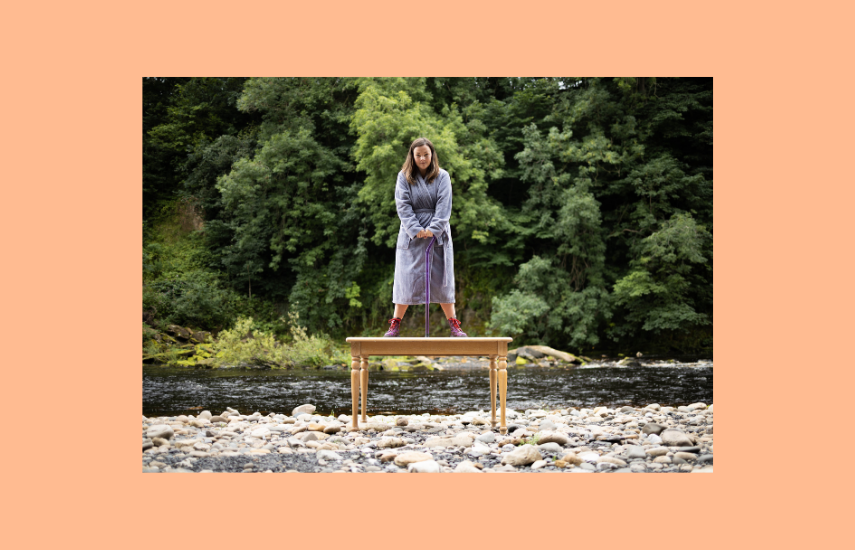REVIEW: Writing the Missing – A River Cycle: A Disability Arts Showcase with Lisette Auton
Posted by

10th October 2020
Review by Heather Craddock
‘The power and quiet and rage and torrent’ so central to Lisette Auton’s call to action in ‘Writing the Missing – A River Cycle’ flows around a central comparison between the limitations placed on disabled artists and on the natural world. With visuals of flowing water and the sounds of raindrops framing the words of the artists, the piece maintains this connection to nature throughout.
Divided into visual sources described by Lisette in regular, imaginative ‘image description’ breaks, this showcase considers the perspectives of Bex Bowsher, Sarah Crutwell and Vici Wreford-Sinnott in what Lisette terms ‘a political act’. Offering a succinct and powerful statement of purpose to begin, Lisette challenges the missing cultural representation of the 25% of people in the North East who are disabled.
Sarah Crutwell’s ‘Head Above Water’ follows Lisette’s introduction with a personal perspective on mental health and disability. The patience and self-tethering required to manage the ongoing issue of staying above water is contrasted with the value of time spent by rivers, open water and coastal areas. Bex Bowsher’s ‘Underground Stream’ examines what lies beneath this water. Delving into the voice of flowing rivers and streams, Bex reflects on the sense of being left behind in a fast-moving world through an imagined journey of water.
Vici Wreford-Sinnott then looks back to ‘before there was ownership of anything’, emphasising that even stories were predated by nature. Vici looks more broadly at the historic foundations of the challenges which disabled artists face, continually critiquing the power structures which impact the lives of those with disabilities. From collectively ‘storming the Sage’ to examples of individuals taking up cultural space, the account of the rich history of disabled artists in North East culture provided here confirms that ‘it’s time to tear down HQ.’
Returning to Lisette’s perspective to round off the cycle, the final section consolidates and celebrates the contribution of disabled artists. This piece, as Lisette states, offers ‘no apologies’. She rightly notes that ‘luck’ should not be the provider of opportunities. The collective voice moves beyond accommodating ignorance and indifference to demand both practical improvements in terms of consistent provision of subtitling, BSL interpretation and audio description, and a shift in perspective to end the erasure of ‘missing’ disabled voices and artists. The search for identity runs through each section of the cycle, firmly establishing the presence of Disability Arts in the North East without seeking to categorise, simplify or condense the perspectives of these women into a single form or theme.
View the event here until 1st November.
This work was produced by participants in our Durham Book Festival Reviewers in Residence programme, a cultural journalism programme run by New Writing North Young Writers. Reviewers in Residence gives aspiring journalists aged 15-23 the chance to review books, attend events and interview authors at the Durham Book Festival. For more information about New Writing North Young Writers visit the New Writing North website.


